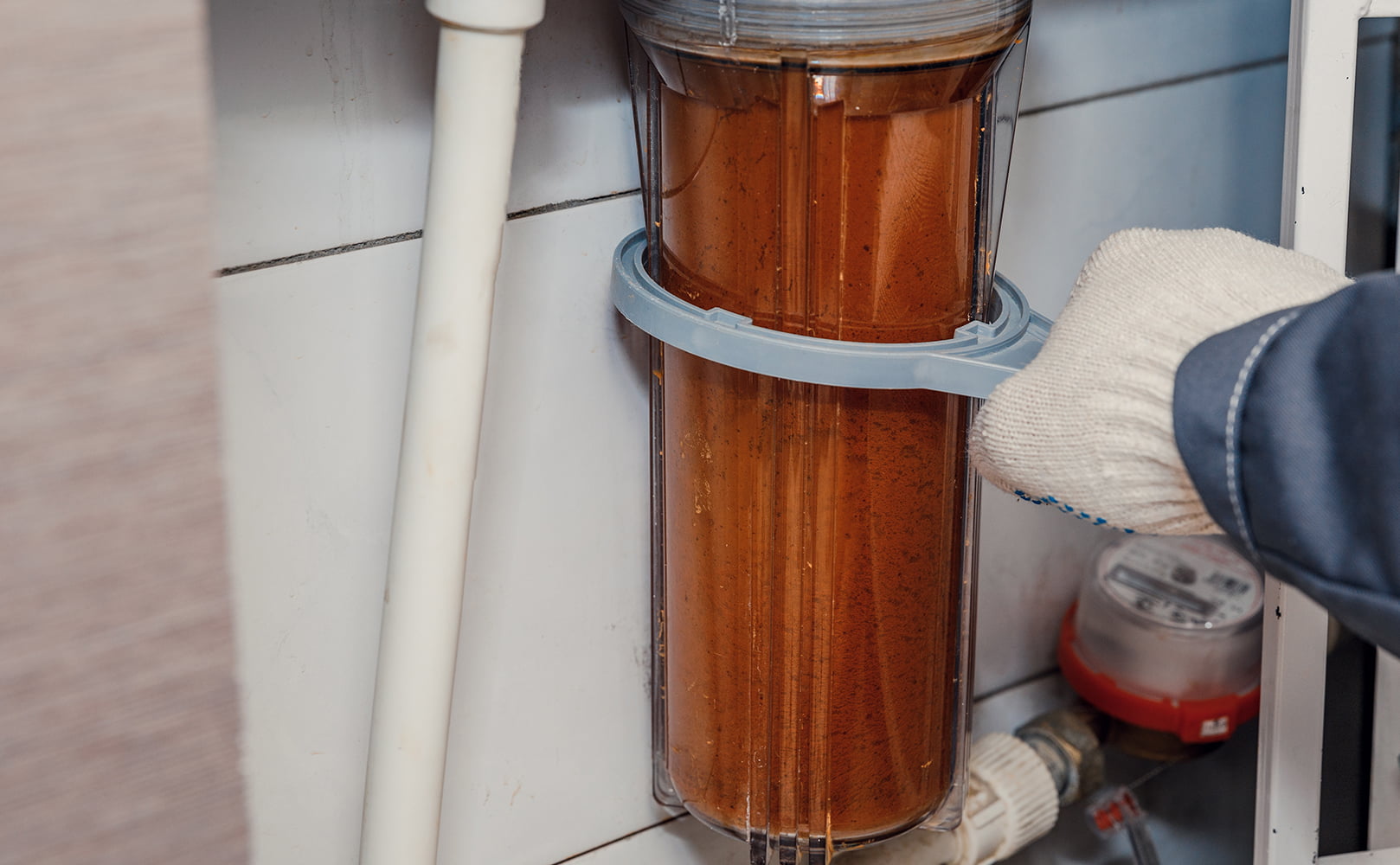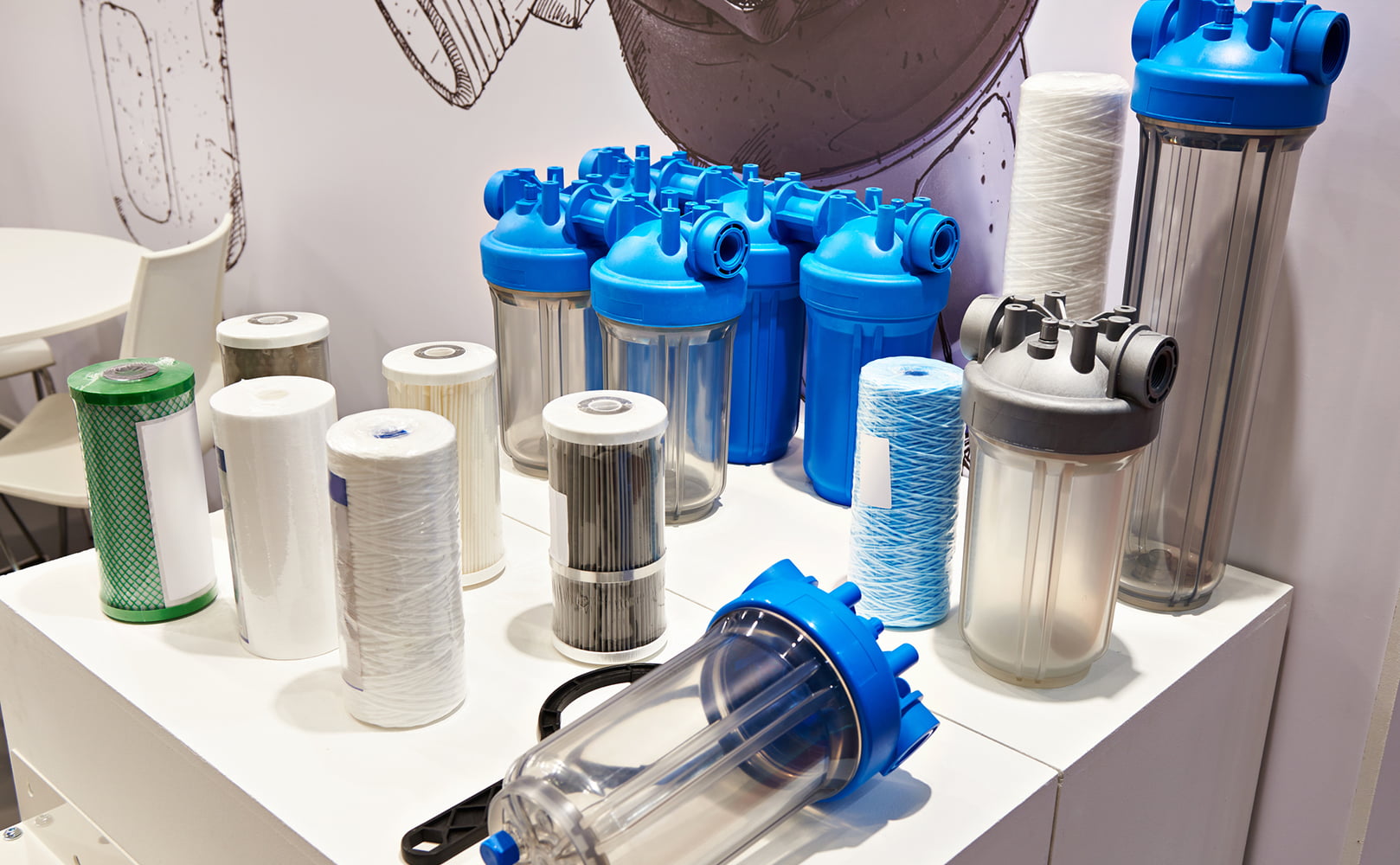Why Is There Mud in My Well Water Filter?
Written by: Gene Fitzgerald // Last Updated: Oct 19, 2022
This page may contain affiliate links. If you buy a product or service through such a link we earn a commission at no extra cost to you. Learn more.
Finding mud in your well water filter is often a cause for concern, though it may not necessarily be indicative of a severe underlying problem.
Depending on the way your plumbing is structured, it could simply be a natural side effect of excess mud making its way into your water supply.
It’s always recommended to inspect this type of problem more closely though, as it could sometimes be a symptom of a more significant issue.
So, why is there mud in your well water filter?
Key Takeaways
- Actual mud in the well water due to wrongly sized or placed well pump, a damaged well screen or well casing, or a newly installed well that still has unsettled surrounding soil
- Organic matter such as algae
- Iron or manganese may degrade your plumbing making it easier for mud to enter the water system ending up in your well water filter
Why Is There Mud in My Well Water Filter? | Common Causes
Actual Mud in the Well Water
Finding mud in your well water itself is not uncommon, and it’s not a reason to worry by default. As long as you have an adequate filtration system to remove it before it reaches your drinking water, that shouldn’t be a cause for immediate concern.
It’s still something you’ll want to address in the future though, because it could degrade your well water filter quickly.
Well Pump Size or Placement
Your well pump could have been installed incorrectly, sucking up mud and other particles instead of just water.
It’s also possible that your pump is not adequately sized for your use case. Pumps that are too large or too small can both lead to additional contamination making its way into your well water.
Well Screen or Casing Issues
Check that your well screen is intact and hasn’t been damaged. The same goes for the well casing.
If the well was installed recently, it’s unlikely that you’ll find a problem there, but it’s still worth checking.
If, on the other hand, your well has been working for a while, it might have been damaged over time.
If you recently did any heavy construction work on your property, that could additionally cause problems with your well’s integrity, too.
Newly Installed Well
Newly installed wells usually need a few weeks before the level of additional contaminants in the water they provide subsides to acceptable levels. Installing a well disrupts the surrounding soil, and in some cases drilling might cause collapses of underground sections which end up in your well water.
Organic Matter
Organic matter should also be considered as a possible cause or mud in a well water filter, even if you don’t have any visible reason to suspect that.
Algae can easily end up in your well water and have to be filtered out. Shallow wells are very prone to this problem.
Iron or Manganese
Iron and manganese don’t directly lead to mud forming in your well, but they can degrade the integrity of your plumbing, which makes it easier for mud to end up in unwanted places.
Pipe Corrosion
Corroded pipes are in a similar category. They open new pathways for mud to enter the water supply and make it more difficult to maintain the overall system.
All in all, it’s important to pay attention to not only your well water filter, but your overall plumbing in general. If you’re working with older pipes that haven’t been replaced in a while, they should be inspected on a regular basis, and ideally replaced at some point.
What to Do About a Muddy Well Water Filter?
If you’ve discovered the root cause of your muddy well water filter problem, you should address it as quickly as possible to prevent the issue from becoming more serious, potentially causing additional issues with your water supply.
Inspection and Adjustment
If you’re using the wrong size well pump, or the pump hasn’t been installed correctly, you should get a professional to inspect the situation and make appropriate adjustments. Sometimes this can require significant work around the well, so be prepared for a project that will disturb your soil and can take a few weeks.
Well Repair
If your well screen or casing is damaged, it should be repaired immediately. Even if the damage doesn’t cause any contamination problems, it’s only a matter of time before things deteriorate further. Ideally, you should work with the contractor who originally installed your well, as they will already be familiar with the overall setup and layout.
Flushing
Flushing the well can help address certain problems, especially if mud has been building up in it for a long time. This is not a long-term solution though, so it should be done together with addressing the root cause of the problem.
It’s also a wasteful operation, but that waste is nothing in comparison to the damages you might incur if your mud contamination problems get more severe.
Testing Your Well Water and Installing Filtration Accordingly
Regular testing of your well water is important. Some people assume that they should only test their wells once. But ideally, you should do this every year.
Changes in the environment can lead to the introduction of new types of contaminants that your current system does not address at all. If any of those contaminants cause structural damage to your well, that could allow mud to enter your water supply.
Spin Down Sediment Filter
Spin down sediment filters are designed to filter out large debris. This includes sand and mud. These filters are often found in configurations for treating well water, and they are usually the first filtration step that removes any coarse dirt from the water before it makes its way to finer filters.
Cartridge-Based Sediment Filter
Cartridge-based sediment filters are more general and target various kinds of contaminants, including finer particles.
They are commonly as pre-filters in combination with other types of whole house water filters to treat different types of contaminants.
Backwashing Sediment Filter
When you need to remove really fine particles from your well water, a backwashing sediment filter is usually the perfect solution.
These filters have the added benefit of lasting longer than most cartridge-based models due to their unique mode of operation. They still need regular maintenance, however.
Iron/Manganese Filter
An iron/manganese filter only makes sense if testing has specifically indicated the presence of these metals in your well water supply.
Remember what we mentioned about testing above though – just because previous test results didn’t show any metal contamination in your water doesn’t mean that this is still the case today. Always get an up-to-date test before you decide to skip certain filtration steps like this one.
If you have any questions about muddy well water filters please don’t hesitate to leave a comment below!
Information provided on BOS is for educational purposes only. The products and services we review may not be right for your individual circumstances.
We adhere to strict editorial guidelines. Rest assured, the opinions expressed have not been provided, reviewed, or otherwise endorsed by our partners – they are unbiased, independent, and the author’s alone. We fact-check all content for accuracy. It is accurate as of the date posted and to the best of our knowledge.



